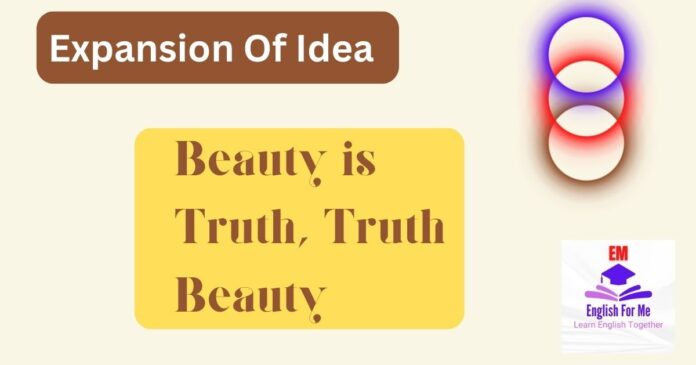Preparing for Novel Genre in std 12 is a challenging task. As there will be no extract provided in the examination, students need to study this chapter 4.2 Around the World in 80 Days in detail. The question Bank on different elements of novel like plot, theme, character, setting and language will ease the challenges for the students.
Summary of the novel
“Around the World in 80 Days” is a classic adventure novel written by Jules Verne. The story follows Phileas Fogg, a wealthy and precise Englishman, who makes a £20,000 wager that he can circumnavigate the globe in 80 days. Accompanied by his resourceful servant, Passepartout, Fogg faces various challenges, including detective Fix, who mistakenly believes Fogg is a bank robber. The duo traverses multiple countries and modes of transportation, encountering cultural differences and unexpected obstacles. In a race against time, Fogg manages to complete the journey, arriving back in London just in time to win the bet.
Major Characters
1. Phileas Fogg:
– Description: A wealthy, reserved, and methodical Englishman.
– Personality: Precise, composed, and seemingly emotionless; values punctuality and order.
– Motivation: Undertakes the journey around the world on a £20,000 wager to prove that it can be done in 80 days.
2. Passepartout:
– Description: Fogg’s clever and adaptable French servant.
– Personality: Resourceful, loyal, and often humorous; brings a dynamic and lively element to the story.
– Role: Essential companion to Fogg during the journey, providing valuable assistance in overcoming challenges.
3. Detective Fix:
– Description: A detective who mistakenly believes Fogg is a bank robber.
– Personality: Suspicious, determined, and initially antagonistic towards Fogg.
– Role: Pursues Fogg across the globe, unaware of his true motivations, leading to unexpected twists.
4. Aouda:
– Description: An Indian princess rescued by Fogg and Passepartout.
– Personality:Grateful, strong-willed, and compassionate.
– Role: Develops a connection with Fogg during the journey, becoming more than just a rescued passenger.
5. Mr. Stuart and Mr. Flanagan:
– Description: Two members of the Reform Club who wager against Fogg.
– Personality:Sceptical, betting against Fogg’s success.
– Role: Represent the doubting perspective, creating tension and stakes for Fogg’s journey.
6. Mr. Sullivan:
– Description: Another member of the Reform Club who oversees Fogg’s journey.
– Personality:Neutral observer, ensuring the journey adheres to the rules of the wager.
– Role: Adds an official and overseeing dimension to the wager.
These characters contribute to the novel’s rich tapestry, each bringing unique traits and challenges to Phileas Fogg’s extraordinary journey.
Question Bank Activities on Around the World in 80 Days
5 C Answer in about 50 words to the questions on Around the World in 80 Days given below. (2×2 marks)
1. Explain how the author has made use of International Date Line and time zones in his novel.
Ans : Phileas Fog accepts the challenge of going around the world in eighty days. The members of the Reform club in England accepts the wager for twenty-thousand pounds. Fog goes around the world. He goes through Brindisi, Suez, Mumbai, Kolkata, Hong Kong, Yokohama , San Fransico, New York and Liverpool. He thinks that he has missed the deadline of eighty days and hasn’t reached London. His companion Passepartout learns that their journey through the different time zones had gained them a day. They reached London a day before the deadline. The author has aptly used time zones in his novel ‘Around the World in Eighty days.’
2. ‘Money was never a concern for Mr. Phileas Fogg; it was for honour he accepted the wager.’ Discuss.
Ans: Mr Phileas Fogg has the opportunity to double his fortune. But Fogg’s adventurous journey has nothing to with the money. He accepts the wager to preserve his honour and prove his worth. He wants to show the members of the Reform Club that he can do anything he sets out to do. He spends nearly all of his money along the way . This shows that for Fogg, honour is more important than money.
3. Phileas Fogg’s travel around the world was full of adventures and surprises. Illustrate.
Ans : The title ‘Around The World in Eighty Days’ itself indicates the adventures in the novel. The novelist takes the readers to a journey of many hair-raising incidents and exciting, adventurous and thrilling places. The journey with trains and ships add adventures. To the surprise Fogg wins the heart of a beautiful and charming woman in India. The detective arrests Fogg at Liverpool. The great surprise is that he keeps his word travelling around the world in eighty days.
4. Explain how the time gained of a full day is revealed to Mr. Fogg.
Ans : Passepartout is sent to engage a clergyman. He runs out out to get a reverend to marry Fogg and Aouda whom Fogg brought from India. The marraige is to be solemnised the next day on Monday according to them. Passepartout learns that the next is Sunday not Monday. He concludes that their journey through the different time zones had gained them a day. and that they are not late. He hurries home and reveals the truth to Mr Fogg.
5. Passepartout stations himself outside Phileas’ door. Give reasons.
Ans: Passepartout stations himself outside Phileas’ door because he wants to keep watch upon his master. Mr. Phileas confined himself as he thought he didn’t reach London in time and lost the wager. Knowing that Englishmen governed by a fixed idea sometimes resort to suicide. Mr Phileas may do that. Passepartout wants to avert the situation if happens. He remains outside Phileas’s door without the knowledge of Phileas.
6. Passepartout blamed himself for the misfortune of his master. Justify.
Ans : Passepartout blamed himself for the misfortune of his master Mr Fogg. He had concealed Fix’s errand from his master. Fix had revealed his true character and purpose . If he had warned his master about Fix’s purpose, his master would have given proof of his innocence. Fix would not have been on the heels of his master to arrest him.
7. Compare the remorse in the minds of Mr. Fogg and Aouda for the seeming failure of his wager.
Ans: Aouda is surprised when Mr Fogg is arrested. Her heart revolts against a charge of robbery on Fogg. She weeps bitterly as she can do nothing to save her protector. Mr. Fogg thought that he was rich enough when he decided bring Aouda from India. She would be free and happy. But as he lost his wager he was ruined.
8. Explain the stress on the mind of Fogg after returning from world tour at Saville Row.
Ans: After returning from the world tour at Saville Row, he did not open the windows and doors. No appearance of change was visible. He bore his misfortune with calmness. He could not sleep throughout the night. He did not take his breakfast and dinner. He buried himself in setting the affairs right.
9. Narrate the happenings at Reform Club on the 80th day of the wager.
Ans : The five club members awaited Mr Fogg at Reform club on the 80th day of the wager. They were excited about winning the wager as they were sure Mr Fogg would not reach there in time . Thomas Flanagan enquired about arrival of last train. They were constantly looking at the clock. They counted the seconds. At the fifty-fifth second a loud cry was heard followed by applause. And Phileas Fogg appeared before the pendulum beat the sixtieth second. He put his promise of traveling the world in 80 days.
10. There was no general agreement about Mr. Fogg’s success in the opponents. Discuss.
11. Narrate the happenings at a prison where Fogg was kept under arrest.
Ans: Mr Fogg was kept in prison. He was arrested by Fix, the detective for robbery. Passepartout would have fallen upon Fix had he not been held by some policemen. Aouda and he had remained at the prison to see Mr Fogg. Mr Fogg seated motionless, calm and without anger on the bench. At thirty-three past two Fix disclosed that the real robber is arrested and he set Mr Fogg free.
12. All is well that ends well. Justify in the light of the extract from the novel ‘Around the World in Eighty Days.’
In the novel “Around the World in Eighty Days,” the main character, Phileas Fogg, faces numerous obstacles and challenges during his journey to circumnavigate the globe in eighty days. However, despite all of these setbacks, the story ultimately has a happy ending, and this can be seen as an example of the truth of the phrase.
For instance, towards the end of the novel, Phileas Fogg has been delayed in his journey due to a mix-up in the timing of his arrival in London. As a result, he seems destined to lose his wager and fail in his attempt to circumnavigate the globe in eighty days. However, at the last moment, he discovers that he has gained a day by travelling eastward, and he manages to arrive back in London in time to win his wager.
13. Winning the heart is preferred to the winning of wager. Express by supporting the details.
Ans : The novel “Around the World in Eighty Days” supports the idea that winning the heart is preferred to winning a wager. Phileas Fogg’s decision to prioritize his relationship with Aouda over his wager demonstrates the importance of personal connections and emotional fulfillment in a person’s life. It suggests that these things are ultimately more valuable than material or monetary success.
Read about To Sir With Love – Drama Genre











